July 7 stands as one of history’s most eventful days, witnessing the rise and fall of empires, groundbreaking discoveries, and moments that shaped our modern world across centuries of human achievement.
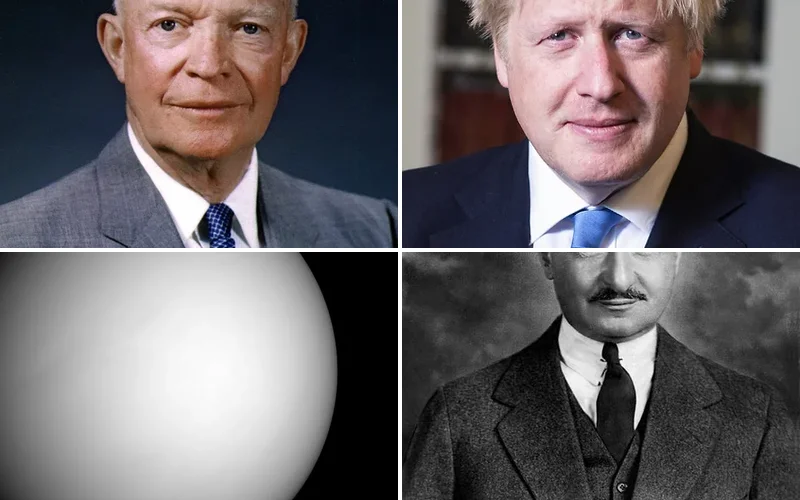
Politics and Government Events on July 7
1937 – Peel Commission Report Recommends Palestine Partition
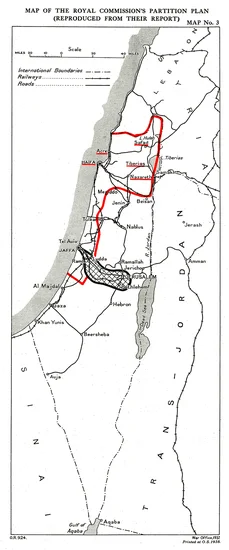
The British Peel Commission issued its historic report recommending the partition of Palestine into separate Jewish and Arab states. This marked the first formal partition proposal in Palestinian history, fundamentally altering the region’s political landscape.
The commission’s recommendations sparked intense debate among all parties involved. Arab leaders rejected the proposal outright, while Jewish leaders expressed cautious acceptance of the partition principle despite concerns about territorial limitations.
1958 – Alaska Statehood Act Signed into Law

President Dwight D. Eisenhower signed the Alaska Statehood Act, paving the way for America’s largest territory to become the 49th state. This momentous legislation transformed Alaska from a distant territory into a full participant in American democracy.
The act represented decades of Alaskan political advocacy and strategic Cold War considerations. Alaska’s vast natural resources and strategic location made statehood a national priority during the heightened tensions with the Soviet Union.
1980 – Solomon Islands Gains Independence
The Solomon Islands achieved independence from the United Kingdom, ending decades of British colonial rule in the Pacific archipelago. The new nation faced immediate challenges in establishing governance across its scattered island territories.
Prime Minister Peter Kenilorea led the transition to independence with careful attention to maintaining stability. The celebration marked a peaceful transfer of power that would serve as a model for other Pacific island nations.
1981 – Sandra Day O’Connor Supreme Court Nomination
President Ronald Reagan nominated Sandra Day O’Connor to become the first female member of the Supreme Court of the United States. This historic nomination shattered the court’s all-male tradition spanning nearly two centuries.
O’Connor’s legal expertise and conservative credentials made her an ideal candidate for Reagan’s judicial philosophy. Her confirmation would open doors for future female justices and transform the court’s dynamics permanently.
2021 – Haitian President Jovenel Moïse Assassinated

Haitian President Jovenel Moïse was assassinated in his residence in Port-au-Prince, plunging the nation into political chaos. Armed gunmen stormed the presidential compound during the early morning hours, executing the controversial leader.
The assassination intensified Haiti’s ongoing political crisis and humanitarian challenges. International observers expressed grave concerns about the country’s stability as various factions competed for power in the aftermath.
2022 – Boris Johnson Announces Conservative Party Resignation

British Prime Minister Boris Johnson announced his resignation as Conservative Party leader following intense pressure from Members of Parliament. The announcement came after days of cascading resignations that effectively ended his political leadership.
Johnson’s downfall resulted from mounting scandals and loss of confidence within his own party. His resignation triggered a leadership contest that would determine Britain’s next Prime Minister during a period of economic uncertainty.
Military and Naval History on July 7
1915 – First Battle of the Isonzo Concludes
The First Battle of the Isonzo ended after weeks of brutal fighting between Italian and Austro-Hungarian forces along the mountainous frontier. This battle inaugurated a series of twelve Isonzo battles that would define the Italian front throughout World War I.
Italian forces under General Luigi Cadorna failed to achieve their strategic objectives despite heavy casualties. The harsh alpine terrain and well-fortified Austrian positions proved formidable obstacles that would characterize the entire Isonzo campaign.
1937 – Marco Polo Bridge Incident Ignites Sino-Japanese War
The Marco Polo Bridge Incident provided the Imperial Japanese Army with a pretext for launching full-scale war against China. This seemingly minor skirmish near Beijing escalated into the Second Sino-Japanese War, marking Asia’s entry into global conflict.
Japanese forces used the disappearance of a single soldier during night maneuvers to justify massive military action. The incident demonstrated Japan’s determination to expand its empire regardless of international opposition or Chinese resistance.
1941 – US Forces Replace British Occupation of Iceland
American forces assumed control of Iceland’s defense, replacing British troops who had occupied the strategic North Atlantic island since 1940. This transition marked America’s increasing involvement in Atlantic convoy protection before formally entering World War II.
The occupation secured vital shipping lanes between North America and Britain against German submarine attacks. Iceland’s strategic position made it essential for maintaining the lifeline that kept Britain supplied throughout the war.
1944 – Largest Pacific War Banzai Charge at Saipan
Japanese forces launched the largest banzai charge of the Pacific War during the Battle of Saipan, representing a desperate final assault against American positions. Thousands of Japanese soldiers, civilians, and wounded participated in this suicidal attack.
The massive charge marked the effective end of organized Japanese resistance on Saipan. American forces, though initially shocked by the scale of the attack, ultimately repelled the assault, securing this crucial stepping stone toward Japan.
1991 – Brioni Agreement Ends Slovenian Independence War
The Brioni Agreement formally ended Slovenia’s ten-day independence war against the Yugoslav federal army. This diplomatic breakthrough represented the first successful secession from the disintegrating Socialist Federal Republic of Yugoslavia.
European Community mediators played a crucial role in negotiating the ceasefire and recognition agreements. Slovenia’s relatively peaceful independence contrasted sharply with the brutal conflicts that would devastate other Yugoslav republics.
2005 – London Transport System Bombings

A coordinated terrorist attack struck London’s transport system, killing 56 people including four suicide bombers and injuring over 700 others. The bombings targeted three Underground trains and one double-decker bus during the morning rush hour.
The attacks occurred just one day after London celebrated winning the bid to host the 2012 Olympics. London’s resilience and the “Blitz spirit” emerged as citizens and authorities responded with determination to continue normal life despite the tragedy.
Science and Discovery Milestones on July 7
1959 – Venus Occults Regulus for Atmospheric Study

Venus passed directly in front of the star Regulus in a rare astronomical event that provided scientists with unprecedented data about the planet’s atmosphere. Astronomers worldwide observed this occultation to measure Venus’s diameter and atmospheric structure.
The event revealed crucial information about Venus’s dense atmosphere and surface conditions. Scientists used the star’s light passing through Venus’s atmosphere to determine atmospheric composition and density, advancing planetary science significantly.
2003 – NASA Launches Opportunity Mars Rover
NASA successfully launched the Opportunity rover aboard a Delta II rocket, beginning its journey to Mars as part of the Mars Exploration Rover program. The spacecraft carried sophisticated instruments designed to analyze Martian geology and search for evidence of past water activity.
Opportunity’s mission was originally planned for 90 days but would ultimately operate for nearly 15 years. The rover’s discoveries revolutionized understanding of Mars’s geological history and potential for past microbial life.
1959 – Venus Diameter Measurement Through Stellar Occultation

The rare occultation of Regulus by Venus provided astronomers with precise measurements of the planet’s diameter using advanced photometric techniques. This celestial event offered a unique opportunity to study Venus’s atmospheric properties without spacecraft.
Ground-based observatories coordinated their efforts to capture data as Venus’s atmosphere gradually blocked Regulus’s light. The measurements contributed significantly to planning future Venus exploration missions and understanding planetary atmospheres.
Cultural and Arts Events on July 7
1907 – Ziegfeld Follies Premiere in New York
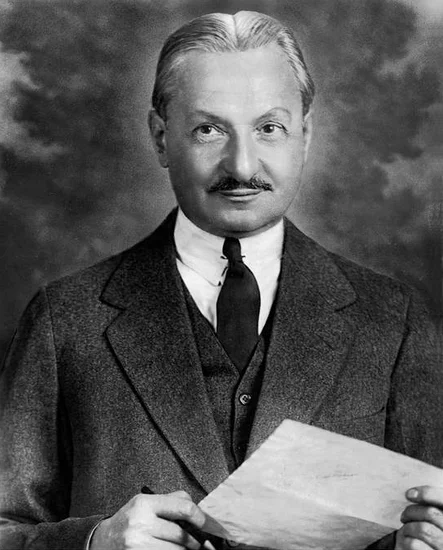
Florenz Ziegfeld Jr. staged his first Follies on the roof of the New York Theater, launching one of Broadway’s most influential entertainment institutions. The production featured elaborate costumes, beautiful chorus girls, and innovative staging that would define American theatrical revue.
The Follies immediately captured New York audiences with its blend of comedy, music, and spectacle. Ziegfeld’s attention to glamour and production values established new standards for theatrical entertainment that influenced American popular culture for decades.
1983 – Samantha Smith’s Soviet Union Peace Mission
Eleven-year-old American schoolgirl Samantha Smith flew to the Soviet Union at the personal invitation of Secretary General Yuri Andropov. Her visit represented a remarkable Cold War cultural exchange that captured international attention and promoted people-to-people diplomacy.
Smith’s letter to Andropov expressing concerns about nuclear war had prompted the unprecedented invitation. Her trip demonstrated the power of individual initiative in bridging political divides and became a symbol of hope during tense superpower relations.
2007 – First Global Live Earth Benefit Concert

The inaugural Live Earth benefit concert took place simultaneously in 11 locations around the world, raising awareness about climate change through music. Major artists performed across multiple continents in an unprecedented global entertainment event.
The concerts reached an estimated global audience of over two billion people across various media platforms. The event demonstrated entertainment’s power to mobilize public attention on environmental issues and inspire collective action.
Religious and Social Events on July 7
1946 – Mother Francesca Cabrini Canonized as First American Saint

Mother Francesca S. Cabrini became the first American citizen to be canonized by the Catholic Church, recognizing her extraordinary work with Italian immigrants. Her canonization represented a milestone for American Catholicism and immigrant communities.
Cabrini had dedicated her life to establishing schools, hospitals, and orphanages throughout the Americas. Her sainthood provided inspiration for countless Catholic immigrants and established her as a patron saint of immigrants and hospital administrators.
1980 – Institution of Sharia Law in Iran
Iran formally instituted sharia law as the foundation of its legal system, marking a complete transformation of the country’s judicial framework. This implementation represented the fulfillment of the Islamic Revolution’s promise to establish a theocratic state.
The new legal system replaced centuries of secular law with religious jurisprudence based on Islamic teachings. Iranian society underwent dramatic changes as traditional Islamic punishments and family law replaced Western-influenced legal codes.
1963 – Buddhist Crisis Police Attack on American Journalists
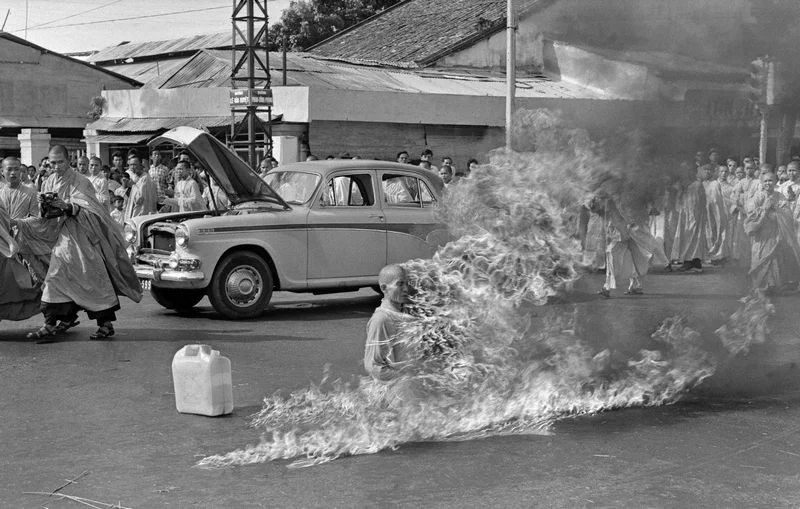
South Vietnamese police under Ngô Đình Nhu’s command attacked American journalists covering Buddhist protests in Saigon. This incident highlighted the deteriorating relationship between the Diem government and international media during the Buddhist crisis.
The attack on journalists sparked international outrage and further damaged the Diem regime’s credibility with American policymakers. The incident contributed to growing American dissatisfaction with South Vietnam’s authoritarian government and religious persecution.
Business and Economic Events on July 7
1928 – Sliced Bread First Sold Commercially

The Chillicothe Baking Company of Missouri began selling sliced bread for the first time, revolutionizing the American breakfast table. This innovation was introduced on inventor Otto Rohwedder’s 48th birthday, marking a milestone in food processing technology.
The pre-sliced bread immediately gained popularity among consumers who appreciated the convenience and uniformity. This product innovation spawned the phrase “the greatest thing since sliced bread” and transformed the commercial baking industry forever.
1930 – Henry Kaiser Begins Boulder Dam Construction

Industrialist Henry J. Kaiser began construction of Boulder Dam, later renamed Hoover Dam, launching one of America’s most ambitious infrastructure projects. The massive undertaking would provide hydroelectric power and water management for the rapidly growing Southwest.
Kaiser’s innovative construction techniques and management methods established new standards for large-scale engineering projects. The dam’s construction provided thousands of jobs during the Great Depression while creating a model for future federal infrastructure investments.
1952 – SS United States Sets Transatlantic Speed Record
The ocean liner SS United States passed Bishop Rock on her maiden voyage, breaking the transatlantic speed record to become the world’s fastest passenger ship. This achievement represented the pinnacle of American maritime engineering and national pride.
The ship’s record-breaking crossing demonstrated American technological superiority during the Cold War era. The SS United States captured the Blue Riband from British ships, symbolizing America’s emergence as a dominant force in international commerce.
Transportation and Infrastructure on July 7
1930 – Hoover Dam Construction Begins

Construction commenced on the massive Boulder Dam project in the Colorado River canyon, representing one of the largest engineering undertakings in American history. The project would transform the American Southwest through flood control, irrigation, and hydroelectric power generation.
The dam’s construction required innovative engineering solutions and mobilized thousands of workers in the remote desert location. This New Deal infrastructure project demonstrated federal government capacity to undertake massive public works during economic crisis.
1952 – SS United States Maritime Speed Achievement
The luxury ocean liner SS United States completed her maiden transatlantic voyage in record time, establishing American dominance in passenger shipping. The ship’s advanced design and powerful engines revolutionized ocean travel between America and Europe.
The vessel’s speed record would stand for decades as aviation gradually replaced ocean liners for transatlantic travel. The SS United States represented the final golden age of luxury passenger shipping before jet aircraft transformed international travel.
1958 – Alaska Statehood Transportation Implications

The Alaska Statehood Act’s passage necessitated significant improvements to transportation infrastructure connecting the new state to the continental United States. Alaska’s vast territory and harsh climate presented unique challenges for establishing reliable transportation networks.
Federal investment in Alaska’s airports, harbors, and highways increased dramatically following statehood. The Alaska Highway and improved air services became lifelines connecting America’s largest state to the rest of the nation.
Sports and Recreation on July 7
1985 – Boris Becker Becomes Youngest Wimbledon Champion

Seventeen-year-old Boris Becker made tennis history by becoming the youngest male player ever to win Wimbledon, defeating Kevin Curren in the final. The unseeded German’s victory shocked the tennis world and launched one of the sport’s most successful careers.
Becker’s powerful serve-and-volley style and fearless diving volleys captivated audiences worldwide. His youth and aggressive playing style brought new excitement to tennis and inspired a generation of young players to pursue professional careers.
2019 – US Women’s Soccer Team Wins World Cup
The United States women’s national soccer team defeated the Netherlands 2-0 in the FIFA Women’s World Cup Final in Lyon, France. This victory marked the team’s fourth World Cup title and second consecutive championship, cementing their status as the world’s dominant women’s soccer program.
The tournament showcased the growing popularity and skill level of women’s soccer globally. The American team’s success inspired increased investment in women’s sports and sparked discussions about equal pay in professional athletics.
1985 – Becker’s Wimbledon Breakthrough Performance

Boris Becker’s Wimbledon victory at age 17 represented one of tennis’s greatest breakthrough performances, as the unknown German defeated established champions. His fearless approach and powerful groundstrokes revolutionized grass court tennis strategy.
The victory transformed Becker from an unknown qualifier into an international celebrity overnight. His success opened doors for German tennis and demonstrated that young players could compete successfully against seasoned professionals.
Notable Births on July 7
1907 – Robert A. Heinlein Born

American science fiction writer Robert A. Heinlein entered the world, destined to become one of the genre’s most influential authors. His childhood fascination with engineering and space exploration would shape his literary imagination throughout his career.
Heinlein would later write groundbreaking novels like “Stranger in a Strange Land” and “Starship Troopers.” His works explored themes of individual liberty, space colonization, and military honor that influenced generations of science fiction writers.
1940 – Ringo Starr Born

Richard Starkey, known professionally as Ringo Starr, was born in Liverpool, England. His rhythmic talents and distinctive drumming style would make him an integral member of The Beatles, the world’s most successful rock band.
Starr’s humor and musical contributions helped define The Beatles’ sound and personality. His post-Beatles career included successful solo recordings and acting roles that maintained his connection to popular culture.
1947 – King Gyanendra of Nepal Born

Gyanendra Bir Bikram Shah Dev entered the world as a member of Nepal’s royal family. His controversial reign as Nepal’s last king would end with the abolition of the monarchy in 2008.
Gyanendra’s assumption of absolute power in 2005 sparked massive pro-democracy protests throughout Nepal. His reign marked the end of centuries of monarchical rule and Nepal’s transition to a federal democratic republic.
1950 – David McCullough Born

American historian and author David McCullough was born, destined to become one of America’s most celebrated biographers and historians. His meticulous research and engaging writing style would bring historical figures to life for millions of readers.
McCullough would win two Pulitzer Prizes for his biographies of Harry Truman and John Adams. His works on American history made complex historical events accessible to general audiences and revitalized interest in biographical writing.
1958 – Mahendra Singh Dhoni Born

Indian cricket captain Mahendra Singh Dhoni was born in Ranchi, Bihar (now Jharkhand). His leadership skills and finishing ability would make him one of cricket’s most successful captains and beloved figures.
Dhoni would lead India to victory in the Cricket World Cup, T20 World Cup, and Champions Trophy. His calm demeanor under pressure and innovative captaincy strategies revolutionized modern cricket leadership.
Notable Deaths on July 7
1930 – Arthur Conan Doyle Dies

British writer Arthur Conan Doyle, creator of Sherlock Holmes, passed away at age 71. His detective stories had revolutionized crime fiction and established the template for modern mystery writing.
Doyle’s logical approach to detective fiction influenced countless writers and established the consulting detective archetype. His works continue to inspire adaptations and interpretations across all forms of media, ensuring Holmes’s immortality.
1965 – Moshe Sharett Dies
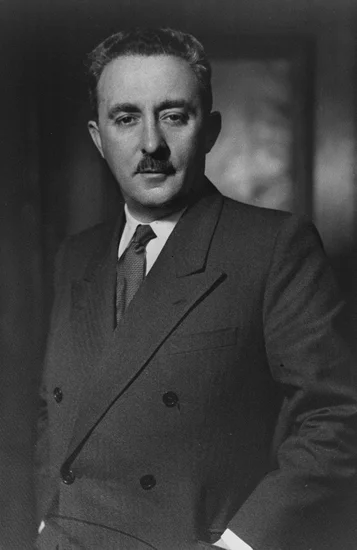
Moshe Sharett, Israel’s second Prime Minister and former Foreign Minister, died after serving as one of the nation’s founding fathers. His diplomatic approach to Middle Eastern politics contrasted with more militant leaders of his era.
Sharett’s emphasis on international law and negotiation represented an alternative path for Israeli policy during the country’s formative years. His moderate approach to Arab-Israeli relations offered insights into different strategies for regional peace.
2006 – Syd Barrett Dies

Syd Barrett, founding member and original creative force behind Pink Floyd, died at age 60. His innovative guitar work and psychedelic songwriting had helped define the sound of 1960s rock music.
Barrett’s mental health struggles and withdrawal from music became legendary in rock history. His brief but influential career demonstrated the creative possibilities and personal costs of artistic innovation during the psychedelic era.
2021 – Dilip Kumar Dies
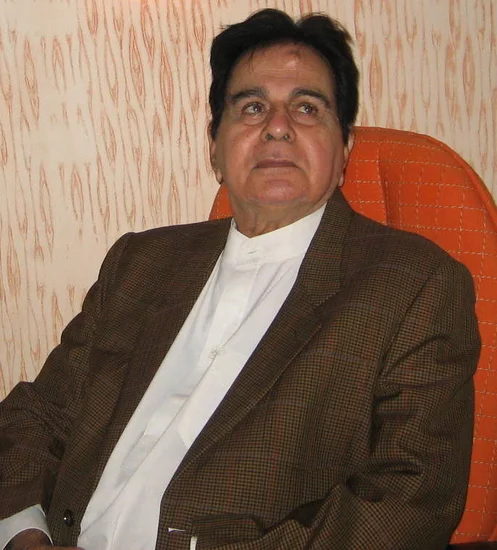
Legendary Indian film actor Dilip Kumar passed away at age 98, ending one of Bollywood’s greatest careers. His method acting approach and emotional depth had influenced generations of Indian actors and filmmakers.
Kumar’s performances in classics like “Mughal-e-Azam” and “Devdas” established new standards for Hindi cinema. His ability to portray complex emotional characters elevated Indian film acting from theatrical tradition to psychological realism.
Holidays and Observances on July 7
Independence Day in Solomon Islands
The Solomon Islands celebrates Independence Day, commemorating their liberation from British colonial rule in 1978. This Pacific nation marks the achievement of self-governance and the establishment of democratic institutions.
The celebration includes traditional dances, cultural performances, and ceremonies recognizing the country’s diverse ethnic heritage. Independence Day serves as a reminder of the ongoing challenges and opportunities facing this young nation.
Tanabata Festival in Japan

Japan observes Tanabata, the Star Festival, celebrating the legendary meeting of celestial lovers Orihime and Hikoboshi. This romantic holiday encourages people to write wishes on colorful paper strips and hang them on bamboo branches.
The festival combines ancient Chinese astronomy with Japanese cultural traditions, creating a unique celebration of love and hope. Communities across Japan organize special events, decorations, and ceremonies to honor this beloved cultural tradition.
World Chocolate Day
World Chocolate Day celebrates humanity’s favorite confection and its cultural significance across civilizations. This observance recognizes chocolate’s journey from ancient Mesoamerican ceremonial drink to modern global commodity.
The day encourages appreciation for chocolate’s complex production process and the farmers who cultivate cacao beans. Chocolate lovers worldwide use this opportunity to explore different varieties and support sustainable chocolate production practices.
